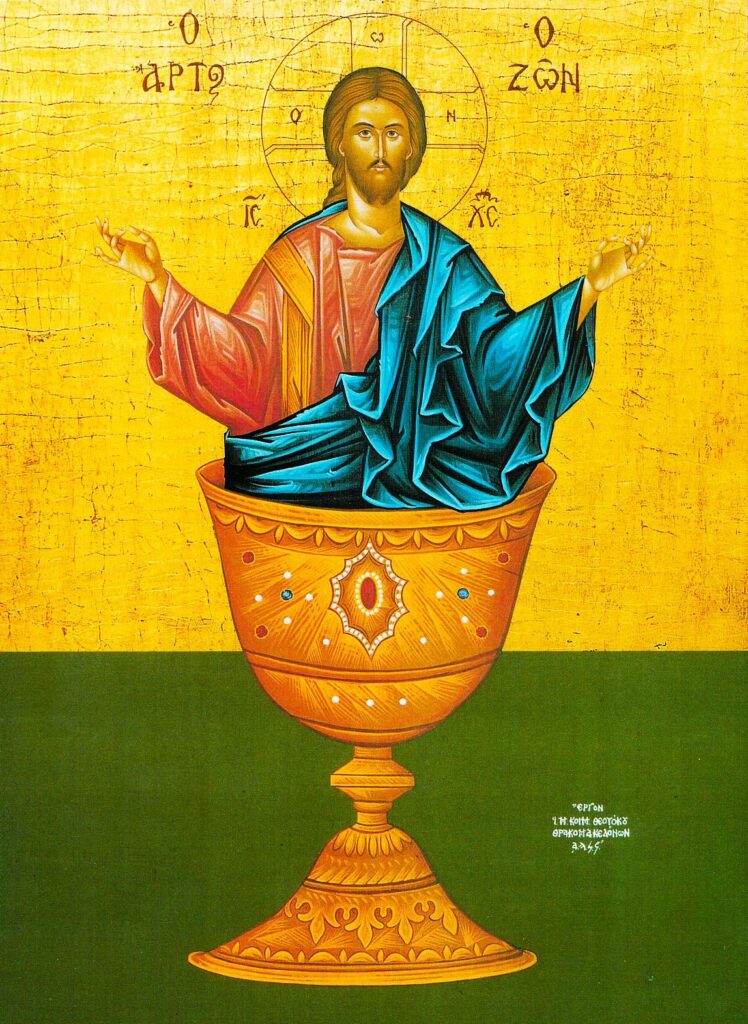In the name of the Father, and of the Son, and of the Holy Spirit, one God, Amen.
We instinctively know, dear brothers and sisters, that someone who says, “I am completely self-reliant, I receive only what I deserve,” is living a fantasy. For much of what we receive we rely on others—on our parents, our family, our teachers and schools, our employers and our friends. Yes, we must cooperate with them, we work in order to receive, but many opportunities are down to luck and chance.
Do you recognise the contribution of others in the successes of your life? Do I? Or do we believe they are exclusively down to ourselves and our hard work?
So far, our world may understand this concept, but for us Christians we can go even further. We can recognise not only other human beings have contributed to our lives but God himself. God created us out of nothing and everything we have is from him: the clothes we wear, our houses, our food and drink, even the very air we breathe is from the Lord. Every moment of our existence is a moment given to us from above.

Humanity was created to live a life of communion with God: a grateful life, a thankful life, a eucharistic life. And humanity rebelled and I continue that rebellion—every sin I commit, every time I turn away from the Lord, whenever I am not grateful, not thankful, not eucharistic, I rebel against my Creator, I sin. Yet in his great love for you, and in his great love for me, the Lord has forgiven each one of us. This is a greater gift than he gave in today’s Gospel reading to the ten lepers because he heals not only bodies but souls. The stain within me is washed clean, God has healed me, forgiven me, made me whole. And now I must respond. I could go out and carry on with my life knowing that God has forgiven me or I could realise the gift I have been given and turn again to the Lord. By the grace of God, I have the capacity to be grateful and thankful—to be eucharistic—and bless the Lord.
God has given us the means to fully accept his forgiveness, the Eucharist which means “thanksgiving.” And if I participate in it, if I not only read and hear the words but absorb them and make the whole ritual my own, then I may truly be as the grateful leper.
My dear brothers and sisters, God is calling each of us to receive all the blessings we are given in a grateful way, a thankful way, a eucharistic way: not merely to receive them but act on them and be united to them through participation in the life of the Church. Take up this calling, live the life of the Eucharist, that we may be united to the body of our Lord and Saviour Jesus Christ which is his Church.
To our Saviour and Redeemer, Jesus Christ, be all glory, honour and majesty together with his unoriginate Father and the All-holy, Good and Life-giving Spirit, Amen.
Brethren, when Christ who is our life appears, then you also will appear with him in glory. Put to death therefore what is earthly in you: fornication, impurity, passion, evil desire, and covetousness, which is idolatry. On account of these the wrath of God is coming upon the sons of disobedience. In these you once walked, when you lived in them. But now put them all away: anger, wrath, malice, slander, and foul talk from your mouth. Do not lie to one another, seeing that you have put off the old nature with its practices and have put on the new nature, which is being renewed in knowledge after the image of its creator. Here there cannot be Greek and Jew, circumcised and uncircumcised, barbarian, Scythian, slave, free man, but Christ is all, and in all.
— Colossians 3:4–11
At that time, as Jesus entered a village, he was met by ten lepers, who stood at a distance and lifted up their voices and said: “Jesus, Master, have mercy on us.” When he saw them he said to them, “Go and show yourselves to the priests.” And as they went they were cleansed. Then one of them, when he saw that he was healed, turned back, praising God with a loud voice; and he fell on his face at Jesus’s feet, giving him thanks. Now he was a Samaritan. Then said Jesus: “Were not ten cleansed? Where are the nine? Was no one found to return and give praise to God except this foreigner?” And he said to him: “Rise and go your way; your faith has made you well.”
— Luke 17:12–19
